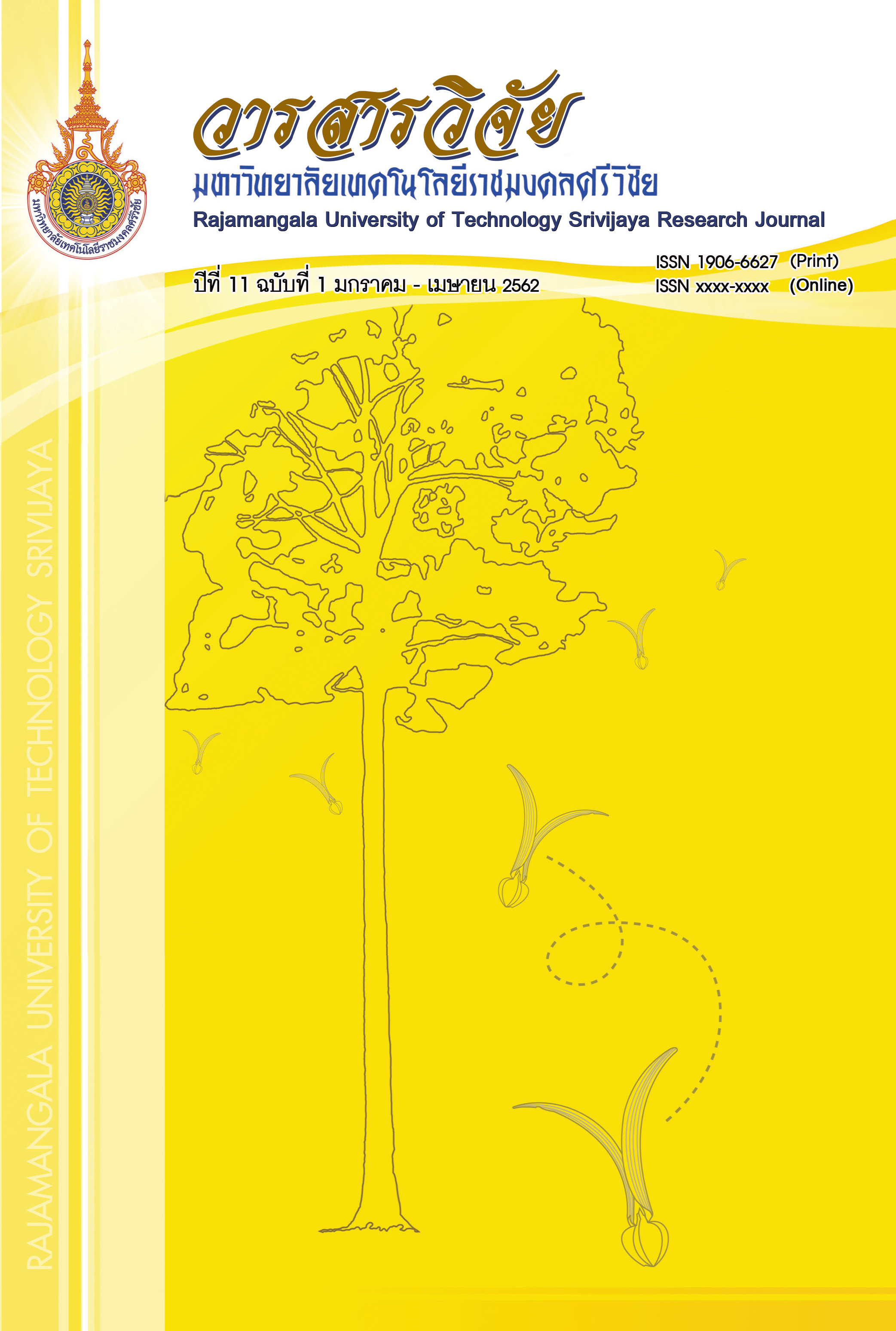Impact of Climate Change on Oil Palm Production in Southern Thailand
Keywords:
climate change, temperature, rainfall, oil palmAbstract
Climate change is a major problem that is affecting the world. The size of the violence may vary depending on the geography of each country. Increasing temperatures and variations in rainfall can have a direct impact on the entire ecosystem, agricultural production system, socio-economic development. It directly affects the agricultural sector in Thailand, which is still dependent on the weather. This research aims to study the effects of climate change on oil palm production in the south of Thailand through the fixed effect model and use the Feasible Generalized Least Squares (FGLS) estimation method using the panel data of 14 southern provinces from 1987 to 2016 to estimate the coefficients of the mean equation. Regarding the analysis of the average oil palm yield equation, it was found that the average temperature and temperature variability had a negative impact on oil palm yield while oil palm harvesting area, average rainfall, rainfall variability and time trends having a positive effect on oil palm yield were statistically significant. The study found that oil palm production remains susceptible to climate change, especially that the rising average temperatures will have a negative impact on oil palm production. To increase oil palm production efficiency, it is suggested that agencies involved in agricultural promotion should raise awareness of the effects of climate change by providing knowledge and information on rapid climate warnings for farmers to plan production appropriately and implementing a policy to develop technology for oil palm production to reduce the impact of climate change that may increase in the future.
Downloads
Published
How to Cite
Issue
Section
License
The content and information in the article published in Journal of Rajamangala University of Technology Srivijaya It is the opinion and responsibility of the author of the article. The editorial journals do not need to agree. Or share any responsibility.







